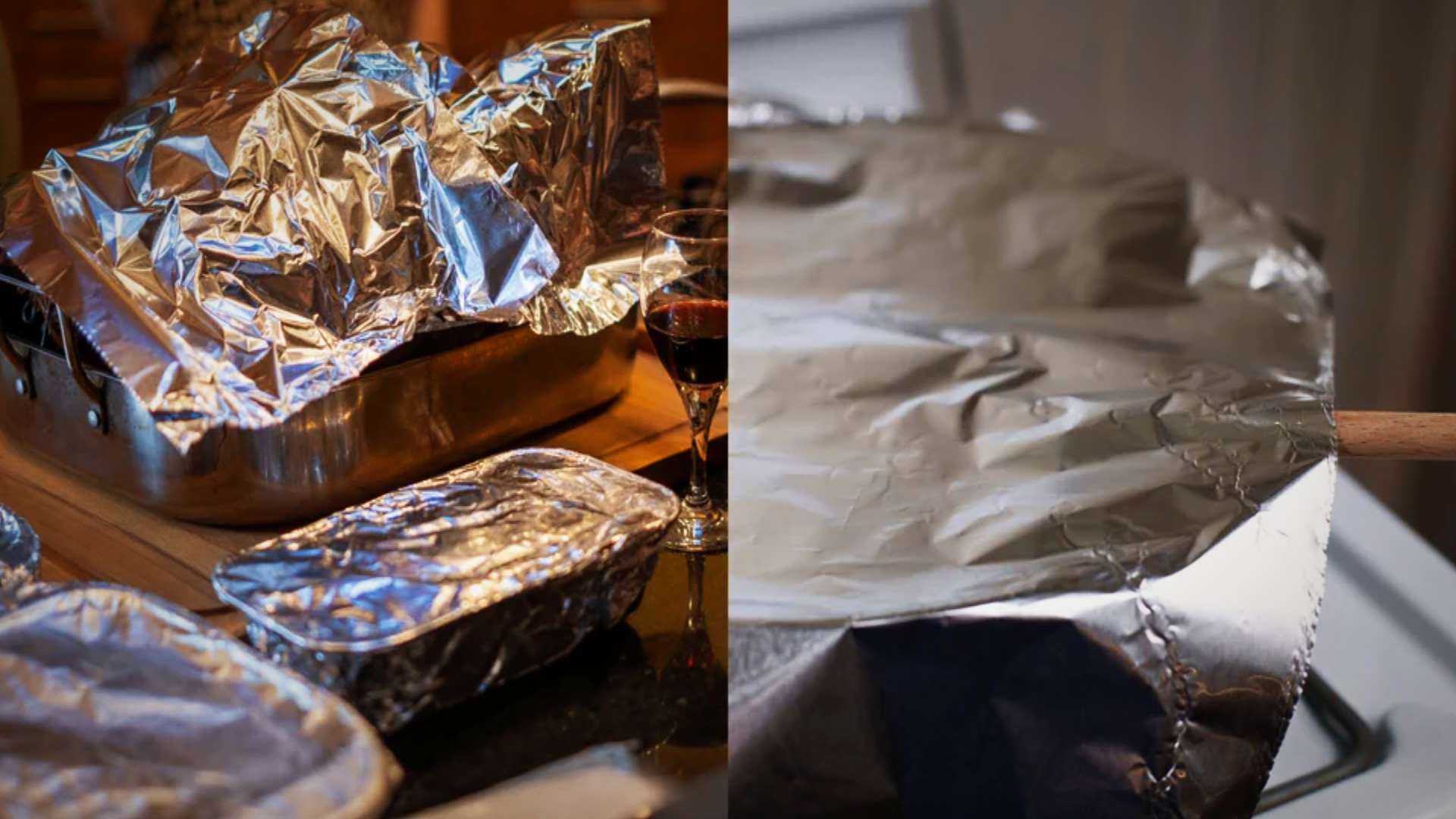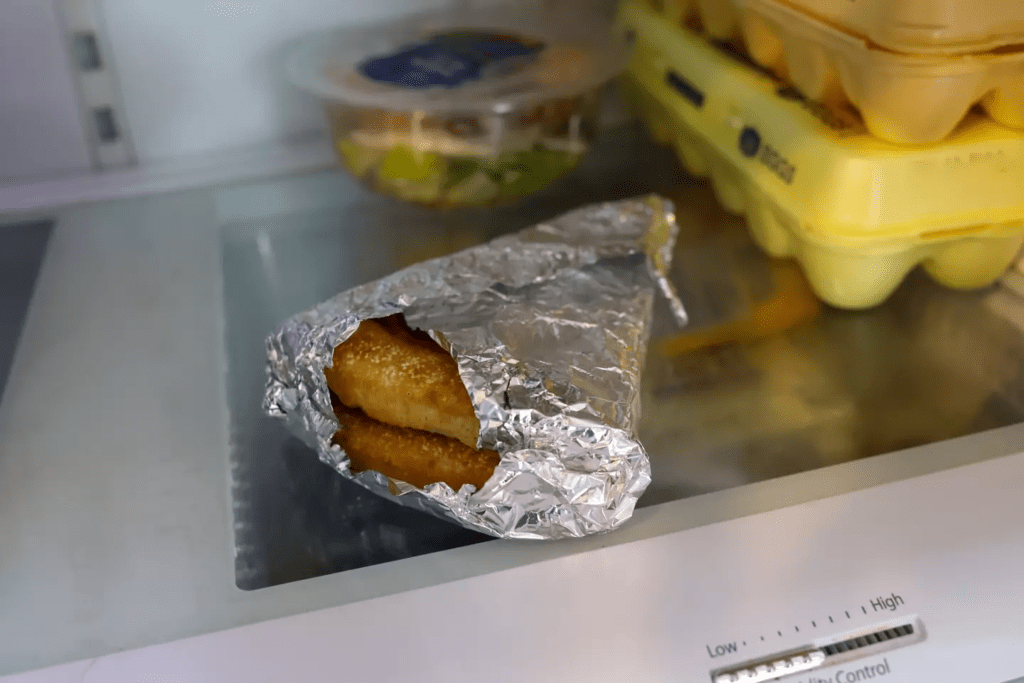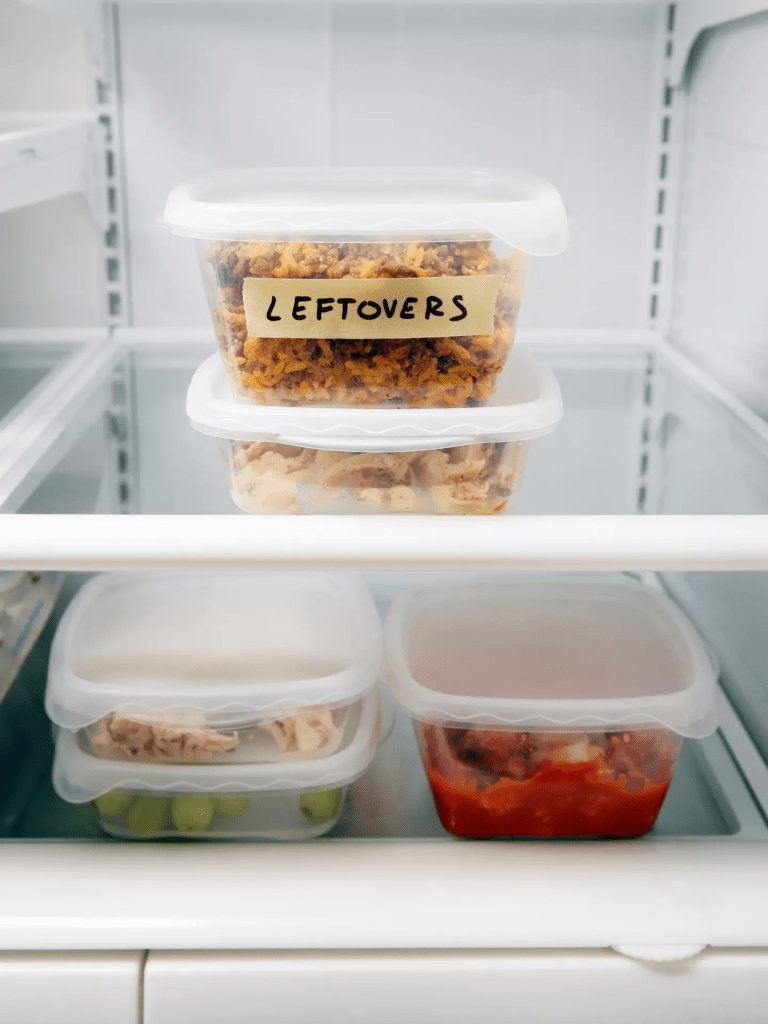Why Storing Leftovers in Aluminum Foil Could Be Dangerous: Experts Reveal the Hidden Risks

If you’ve been storing your food leftovers by wrapping them in aluminum foil for years, you might want to rethink that practice. According to experts, this seemingly harmless method could put you at risk of dangerous foodborne illnesses—and in some cases, it could even be fatal.
The way we store food is something we often do without much thought. We assume that as long as the food looks fine and smells okay, it’s safe to eat. But experts say that improper food storage can lead to serious health risks. Here’s why wrapping food in aluminum foil might be more dangerous than you think.
The Dangers of Storing Food in Aluminum Foil
It’s a common practice to wrap leftovers in aluminum foil before putting them in the fridge. However, this method doesn’t provide a proper seal, leaving your food vulnerable to bacterial contamination.
Dr. Zachary Cartwright, a food scientist at Aqualab in Chicago, explains that the problem with aluminum foil is that it doesn’t create an airtight seal. “Aluminum foil alone cannot create a completely airtight seal because it’s not inherently adhesive and doesn’t conform perfectly to surfaces,” he shared with Southern Living.

This lack of an airtight seal increases the risk of bacteria growing on your food, leading to food poisoning. In the worst-case scenario, this could be fatal. Although wrapping your leftovers in foil might seem convenient, it’s not the safest method for storing food.
Social Media Buzz: Is Your Leftover Storage Method Safe?
Have you been using aluminum foil to store your leftovers? Let’s hear what social media users have to say about it.
- Instagram Post: “Just learned that storing leftovers in aluminum foil isn’t as safe as I thought! Experts are warning it could lead to food poisoning. Time to switch to airtight containers. 🙌 #FoodSafety #Leftovers #BacteriaRisks”
- Tweet: “Who knew that aluminum foil isn’t airtight? 😱 Experts say it’s a no-go for storing leftovers. Time to grab some sealable containers. #FoodStorage #HealthTips”
- Facebook Post: “Did you know? Food scientists say aluminum foil could be risky for storing leftovers! It doesn’t create a proper seal, leaving your food vulnerable to bacteria. Switching to airtight containers is a safer bet! #FoodSafety #HealthMatters”
Why Airtight Containers Are a Safer Choice
To keep your leftovers safe, experts recommend using airtight containers or sealable plastic bags instead. Unlike aluminum foil, these alternatives provide a more reliable seal, keeping bacteria out and preventing contamination.
According to Dr. Cartwright, using Tupperware or similar containers is the safer option for storing food. These containers are designed to be airtight, offering better protection against harmful bacteria that thrive in moist environments.
But that’s not all—air-tight storage doesn’t just stop bacterial growth. It also helps preserve the flavor and quality of your food. So, in addition to keeping your food safe, you’ll also enjoy it tasting fresher for longer.
The Importance of Properly Storing Leftovers
It may surprise you how quickly bacteria can start growing on food. In fact, bacteria like Staphylococcus or Bacillus cereus can multiply rapidly if food is not stored correctly.
Primrose Freestone, a senior lecturer in clinical microbiology at the University of Leicester, warns that even refrigerators can’t prevent bacteria growth entirely. While cold temperatures slow the growth of pathogens, they don’t stop it completely. “Cold only slows down the growth of pathogens like Staphylococcus or Bacillus cereus,” she explained. “Only freezing at minus 20°C can stop food poisoning bacteria from growing.”
Freestone also emphasized how important it is to reheat food properly and store it safely. If leftovers aren’t heated thoroughly or stored correctly, they could lead to food poisoning. In severe cases, this could be life-threatening.

How Quickly Does Bacteria Grow?
Bacteria are everywhere—in your kitchen, on your utensils, and even on the food you eat. Leftovers are a prime breeding ground for bacteria, especially if not stored properly. According to Freestone, bacteria can double in number as quickly as every 20 minutes if they have access to moisture, the right nutrients, and the proper temperature.
It’s essential to take the right precautions when storing your food. If you’re not sure you’ll finish leftovers within two days, it’s a good idea to freeze them instead. Freezing can stop bacterial growth, giving you more flexibility with how long you can store your food.
Best Practices for Storing Leftovers Safely
Here are some quick tips to ensure your leftovers stay safe to eat:
- Use Airtight Containers: Opt for Tupperware or plastic containers that can be sealed tightly. This helps prevent bacteria from entering and keeps your food fresh.
- Reheat Properly: When reheating leftovers, make sure they’re heated thoroughly to kill any bacteria that might be present.
- Freeze When in Doubt: If you’re unsure whether you’ll finish your leftovers in time, freezing them is a great option. Freezing food at temperatures below -20°C can stop bacterial growth and extend the shelf life of your meals.
- Store Promptly: Don’t leave leftovers sitting out for too long at room temperature. Refrigerate or freeze them within two hours of cooking to avoid contamination.
If you’re looking to invest in airtight containers, there are several options available. Popular brands like Tupperware and Lock & Lock offer a variety of products designed to keep food fresh for longer.
Social Media Spotlight: Safe Food Storage Practices
As more people learn about the dangers of storing food in aluminum foil, the conversation is picking up steam on social media. Here’s a snapshot of how people are reacting:
- Instagram Story: “Did you know that aluminum foil doesn’t keep your food safe? I’ve been doing it wrong all this time! Time to switch to airtight containers. #FoodStorage #SafetyFirst”
- Twitter Thread: “Why didn’t anyone tell me about the dangers of using aluminum foil to store leftovers? 🤔 Experts recommend airtight containers instead! #HealthyHabits #FoodSafety”
- Pinterest Pin: “Find out why aluminum foil could be putting your health at risk. Learn how to store leftovers the right way. #LeftoverStorage #FoodSafetyTips”
Wrapping Up
While it may be tempting to wrap your leftovers in aluminum foil and call it a day, experts warn that this could expose you to dangerous bacteria. An airtight seal is crucial for keeping food safe, and aluminum foil simply doesn’t cut it. When it comes to food storage, choosing the right containers can make all the difference in maintaining the freshness and safety of your meals. Airtight containers not only help preserve the quality and taste of food, but they also prevent harmful bacteria from growing, reducing the risk of foodborne illnesses.
Remember, bacteria thrive in moist environments, and leftovers are the perfect breeding ground if not stored properly. Investing in quality airtight containers and adopting proper food storage habits, like refrigerating or freezing food promptly, can go a long way in safeguarding your health.
By following these simple food storage guidelines, you can avoid foodborne illnesses, enjoy your leftovers without worry, and ensure that your food is as safe to eat as possible. It’s always better to be cautious when it comes to your health!
It’s never too late to make these small changes and protect yourself and your family from potential risks. The next time you store leftovers, make sure you choose airtight containers over aluminum foil. Your health will thank you!
Related Reading:
Featured Image Credit: Getty Stock Images





